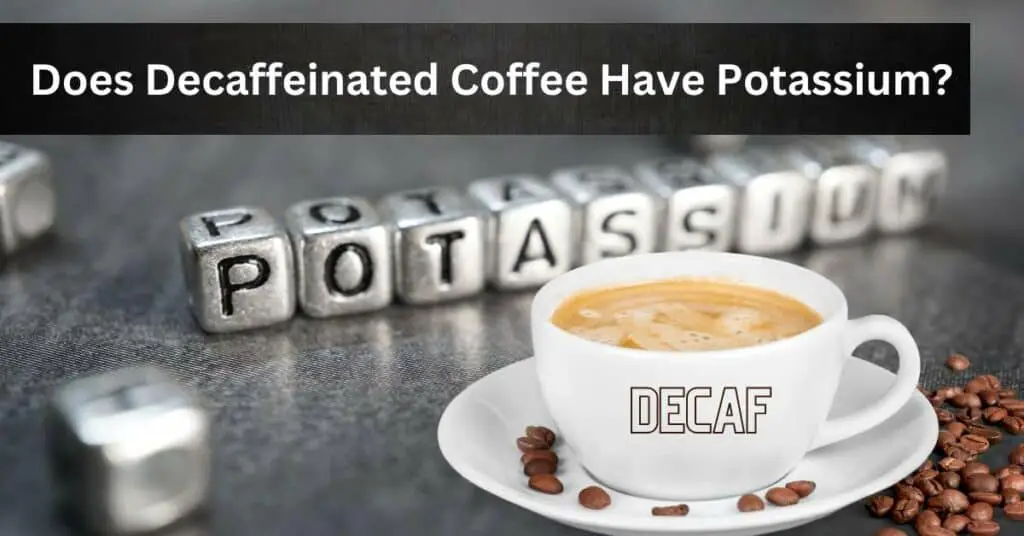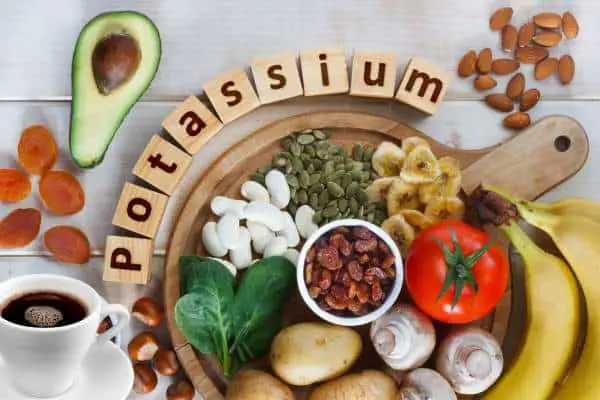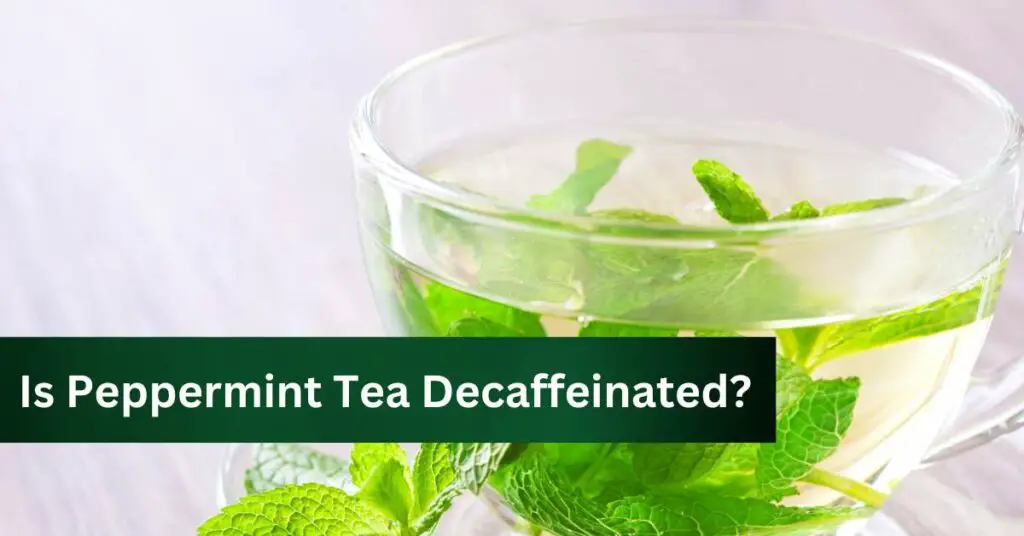The decaffeinated beverage is an excellent option for controlling caffeine and calorie intake. Decaf coffee is manufactured in different ways, like the swiss water process, ethyl acetate, methylene chloride, and carbon dioxide.
According to the method of decaffeination, the result will differ. Decaffeination’s natural water process helps remove most of the caffeine while retaining the health benefits.
In contrast, methylene chloride decaffeination may remove some essential nutrients along with caffeine.
Regular coffee beans contain potassium. Some people need clarification about whether decaf coffee beans contain potassium. If you are also trying to understand decaf coffee’s potassium content, you found the right blog!
Regular coffee generally has around 128 mg of potassium per cup. Decaf coffee has slightly more caffeine than regular coffee (168 mg of potassium per cup). The potassium content in decaffeinated coffee may vary according to the decaffeination method.
Potassium
The tissue in the human body requires potassium, so it is one of the essential minerals. The electric charge in potassium helps activate nerve and cell functions. This mineral is found naturally in many food items.
The potential health benefits of potassium include preventing osteoporosis and stroke, reducing blood pressure, preventing the formation of kidney stones, and reducing water retention.
The kidney will filter the potassium you intake through food and beverages, and it excretes excess potassium as urine.
Although potassium has several benefits, excessive consumption will damage the kidney. Hence, it is crucial to know how much potassium is present in the food that you are consuming.
Does Decaffeination Affect the Potassium Content?
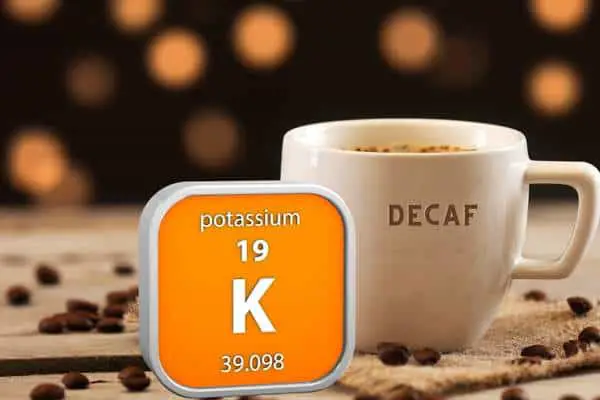
Coffee beans contain five essential minerals, including potassium and calcium. Around 97% of the caffeine is removed when you decaffeinate coffee beans.
According to the decaffeination process, the amount of potassium in the decaffeinated coffee beans will vary.
Hence, decaffeination alters the potassium content of coffee beans. The swiss water process decaffeination will increase the potassium content as the caffeine is removed using the natural method where no chemicals are involved.
In contrast, you cannot witness the same result if you use methylene chloride to decaffeinate the coffee.
How Much Potassium is in Decaf Coffee?
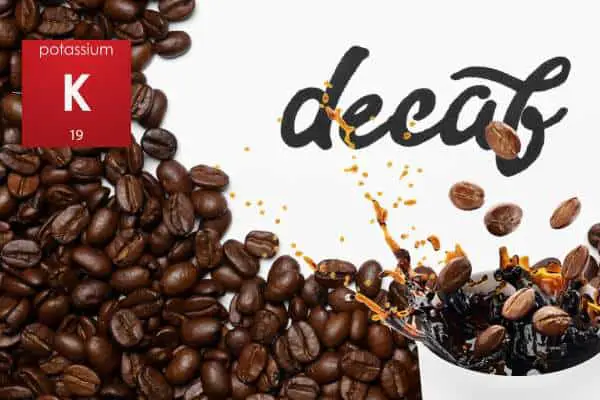
As said above, the potassium content in decaffeinated coffee will differ according to the decaffeination method. Usually, decaffeinating coffee beans through the natural water process leads to a higher potassium content.
Naturally, the coffee beans will contain potassium, so there will be around 116 mg of potassium in a regular cup of coffee. Decaf coffee is produced by decaffeinating these coffee beans to remove caffeine. Many studies have found that decaf coffee’s potassium content is slightly higher than regular coffee’s. A cup of decaf coffee will have approximately 128 mg of potassium.
Water process decaffeination helps remove caffeine from the beverage while retaining most nutrients. Hence, you will find many benefits in decaf coffee similar to regular coffee.
The most significant advantage is that even caffeine-intolerant people can consume this drink. The nutrients left after decaffeination will also vary according to the decaffeination method.
According to the research, decaffeinated coffee that is decaffeinated using the water process, methylene chloride, ethyl acetate, or carbon dioxide will still have potassium.
Is Decaf Coffee Rich in Potassium?
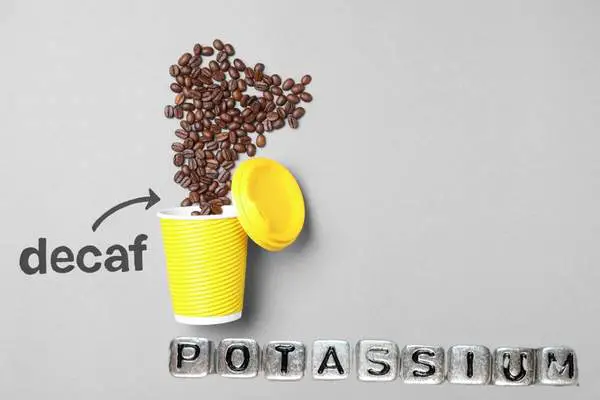
When you compare regular, decaf, and instant coffee, the potassium content in decaf coffee is higher. Following is the approximate potassium content that you will find in these three types of coffee:
- 8 ounces of decaf coffee: 128 mg potassium
- 8 ounces of regular (black) coffee: 116 mg potassium
- 8 ounces of instant coffee: 96 mg potassium
Although decaf coffee has more potassium, this does not mean it is rich in this mineral because many other food items are rich in potassium. The potassium content in decaf coffee is safe for consumption.
Drinking excessive decaf coffee daily may cause high blood potassium levels. Hence, limiting your daily decaf coffee consumption to 2-3 cups is better.
Additives Affecting the Potassium Content in Decaf Coffee
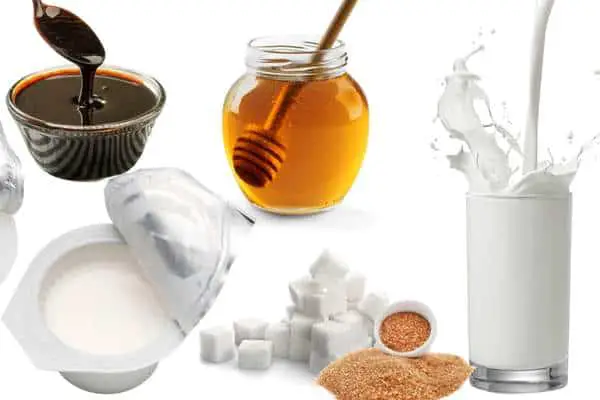
A few additives will increase the potassium content in your decaf coffee. The potassium in decaf coffee is lower when it is brewed simply with hot water.
The potassium content will increase if you add any of the following additives:
Milk
Milk contains around 366 mg of potassium per cup.
Some people prefer adding milk to decaf coffee. The good rule of thumb is to add milk and coffee in a 1:1 ratio.
Since it is not compulsory, you can decide how much milk you need depending on the desired taste. However, if you add milk, this will affect the potassium content of your decaf coffee.
Coffee Creamer
Coffee creamer will also contain potassium, but the content will vary according to the type and brand of the creamer.
30 ml of half-and-half creamer will have approximately 40 mg of potassium.
Granulated Sugar
Both brown and white sugar contains potassium, so adding them to decaf coffee will cause changes in the overall potassium content. A teaspoon of sugar will have 5.6 mg of potassium.
You might often add two teaspoons of sugar to one cup of decaf coffee. Hence, you are adding 11.2 mg of potassium.
Besides these additives, honey, molasses, coffee mate, etc., will also increase the potassium. Hence, if your doctor has recommended limiting your potassium intake, avoiding such additives in your daily beverage is better.
Hyperkalemia (High Potassium)
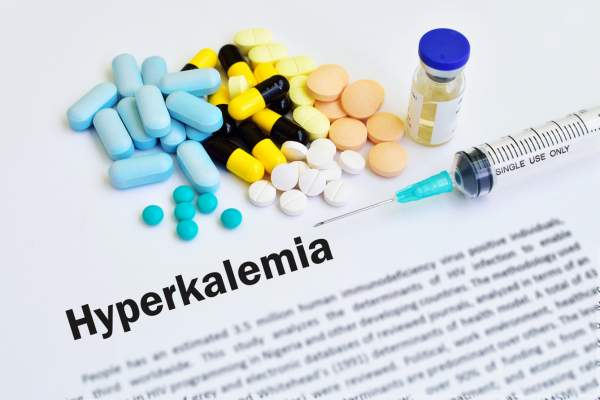
It is essential to check your potassium intake, especially if you have high blood potassium.
Hyperkalemia is a medical issue where people have high potassium levels in their blood. Potassium is essential for properly functioning muscles, nerves, and the heart. In contrast, excessive potassium may result in severe heart problems.
The leading causes of hyperkalemia are:
- Kidney disease (failure to remove excess potassium from the body as urine)
- High potassium diets
- Drugs that prevent your kidney from removing extra potassium
Hence, if you have high blood potassium, you must consult the doctor and check on treatment and diet plans to cure this problem.
Bottom Line
Coffee beans have potassium, so decaf coffee produced with 100% Arabic coffee beans will also have potassium. In comparison with regular coffee, decaf coffee has more potassium.
This is because the decaffeination process slightly alters the potassium content of the beverage. Additives like milk, creamer, sugar, and honey will further increase the potassium in your decaf coffee.
You can generally drink 2 to 3 cups of decaf coffee daily. If you have high blood potassium, it is better to ask the healthcare professional how many cups of decaf coffee will be safe for daily consumption.
FAQs
Can I Drink Decaf Coffee With Kidney Disease?
The answer may depend on the type of kidney disease.
Although decaf coffees do not contain much potassium compared to other food items, checking your health condition with a professional is often recommended. He would suggest whether to avoid or limit drinking decaf coffee.
What Happens When Your Blood Potassium Level Raises?
You would experience nausea, vomiting, chest pain, shortness of breath, and heart palpitations during high potassium levels.
Does Milk Increase Potassium in Decaf coffee?
Yes, since milk contains 350 mg of potassium per cup, including this in your decaf coffee will alter the overall potassium content.

